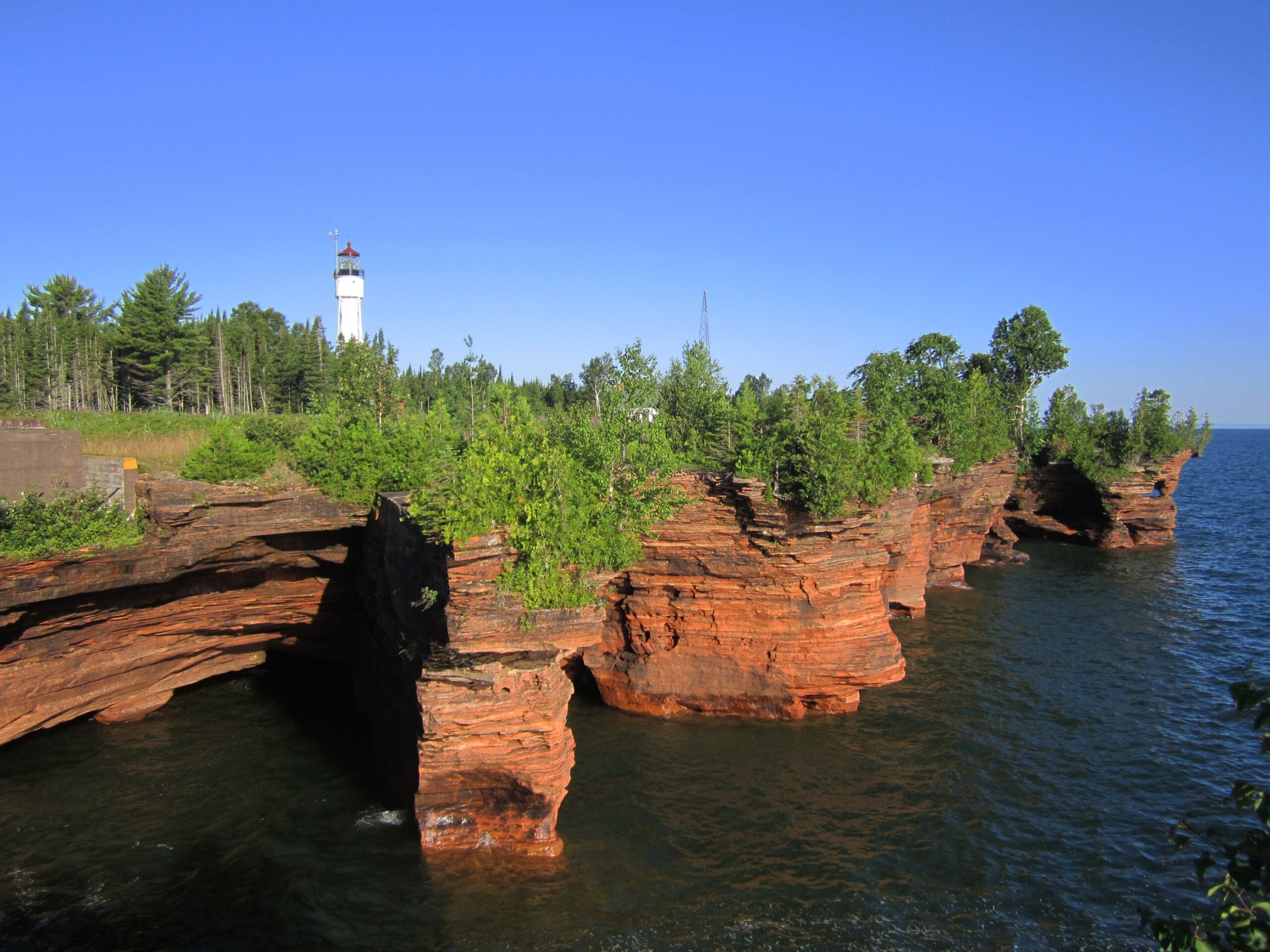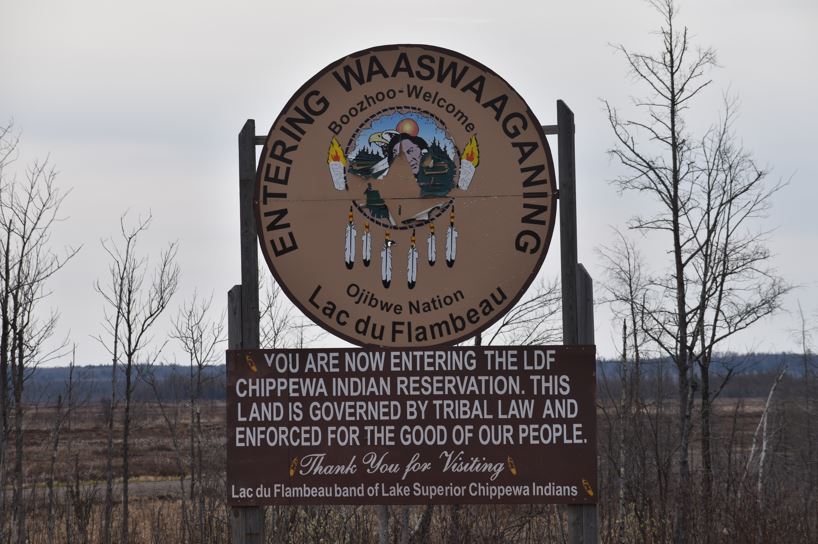Authorities in Wisconsin and Michigan have now signed off on the Menominee Indian Tribe’s nomination of a site to the National Register of Historic Places, but that’s drawn backlash from some Michigan lawmakers who say it’s a veiled attempt to stop the Back Forty mine on the Michigan-Wisconsin border.
Historic preservation boards in Wisconsin and Michigan have approved the nomination of Anaem Omot, a culturally significant site to the tribe.
The site on the Menominee River includes the Sixty Islands area where the tribe once lived, and it contains the tribe’s dance rings and burial mounds. Menominee Tribal Chair Ron Corn Sr. said the area nominated is where the Menominee people lived and thrived for thousands of years until they were forced to move to the tribe’s current reservation as part of the 1854 treaty with the federal government.
Stay informed on the latest news
Sign up for WPR’s email newsletter.
“We’re trying to protect our historic and cultural places. We’re trying to protect the resting place of our ancestors,” said Corn. “We’re trying to protect the stories that we have in that place.”
The site is also where Gold Resource Corp. wants to mine gold and other metals for the Back Forty project. The company obtained the project when it acquired Toronto-based Aquila Resources late last year.
Aquila planned to build a 750-foot deep, open-pit mine on 83 acres to extract gold, zinc and other metals, according to the Detroit Free Press. The project would have come within 150 feet of the Menominee River.
Michigan State Sen. Ed McBroom said listing the site as a historic district would add more hurdles to the permitting process for the mine.
“Suddenly, they’re only up here to stop this mine, and this is just their latest trick in the bag to do so,” said McBroom, a Republican lawmaker who represents Michigan’s Upper Peninsula.

The tribe has made no secret of its opposition to the Back Forty project, but Corn insists the nomination is about protecting cultural resources.
The Menominee tribe had challenged a wetlands permit that Michigan regulators issued for the mine in 2018. Early last year, a Michigan administrative law judge revoked that permit. The tribe also won its appeal of regulators’ decision to issue a mining permit for the project. A Michigan judge ruled in April last year that the permit should be sent back for further review of potential impacts to groundwater.
Aquila eventually withdrew those permits. Now, Gold Resource Corp. is currently conducting a feasibility study of the Back Forty mine.
The project’s previous owners tried to design a mine that avoids disturbing important cultural and archaeological sites, according to Steve Donohue, vice president of environment and regulatory affairs in Michigan for Gold Resource Corp.
“We’re continuing along in the same approach of designing a project that, one, is respectful of the Menominee Indian Tribe’s ties to the area and avoids any disturbance of archeological resources,” said Donohue, adding the company wants to hold more discussions with the tribe.
Donohue said the company plans to advance a new project design and footprint for permitting once the feasibility study is complete later this year or in early 2023. The study will outline engineering, cost, and job creation projections for the mine.

The company doesn’t anticipate listing the site on the National Register of Historic Places would prevent the Back Forty mine from being built.
Dale Burie lives a quarter mile from the river in the community of McAllister within Marinette County. Burie and his wife founded the nonprofit Coalition to Save the Menominee River. The group has opposed the Back Forty project over fears that mining metals within the region’s sulfide ore bodies would lead to acid mine drainage and water contamination. He said a historic designation for the site is long overdue.
“It’s simply paying honor and homage to the people who lived here first,” said Burie.
The Michigan Historic Preservation Review Board most recently voted in favor of the nomination last month, and Wisconsin’s board supported the nomination last November.
“It received unanimous Board support,” Daina Penkiunas, State Historic Preservation Officer, said in a statement. “At the meeting, several individuals spoke in support of the nomination, including Menominee Tribal Chair Ron Corn Sr., Vice Chair Douglas Cox, and Wisconsin Historical Society Director and CEO Christian Overland. As a property spanning two states, the Michigan Board considered the nomination at its September 2022 meeting.”
A spokesperson on behalf of Michigan’s State Historic Preservation Office did not respond to a request for comment. The nomination of the site will next be forwarded to the National Park Service for their review.
Wisconsin Public Radio, © Copyright 2025, Board of Regents of the University of Wisconsin System and Wisconsin Educational Communications Board.




